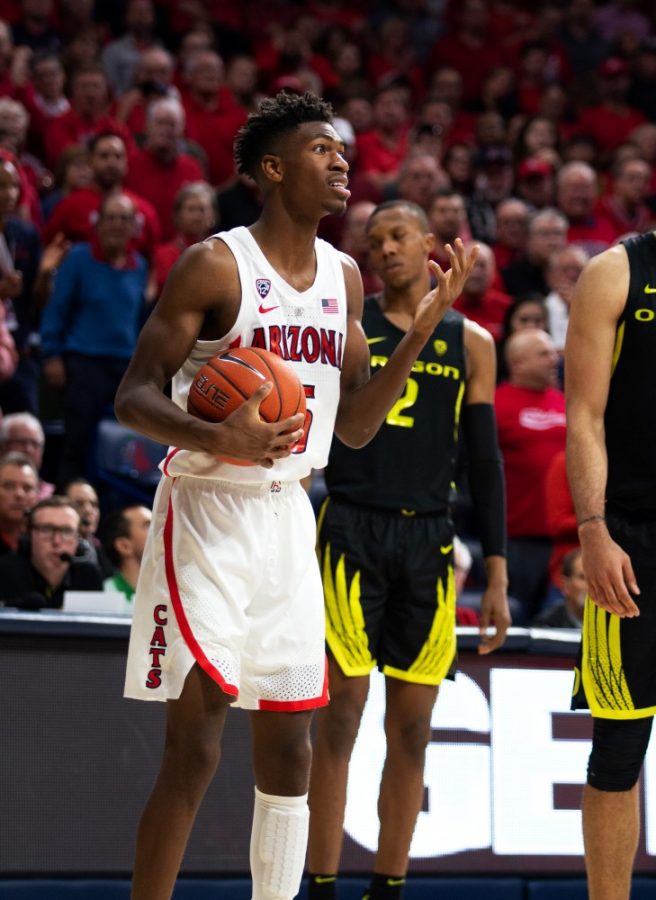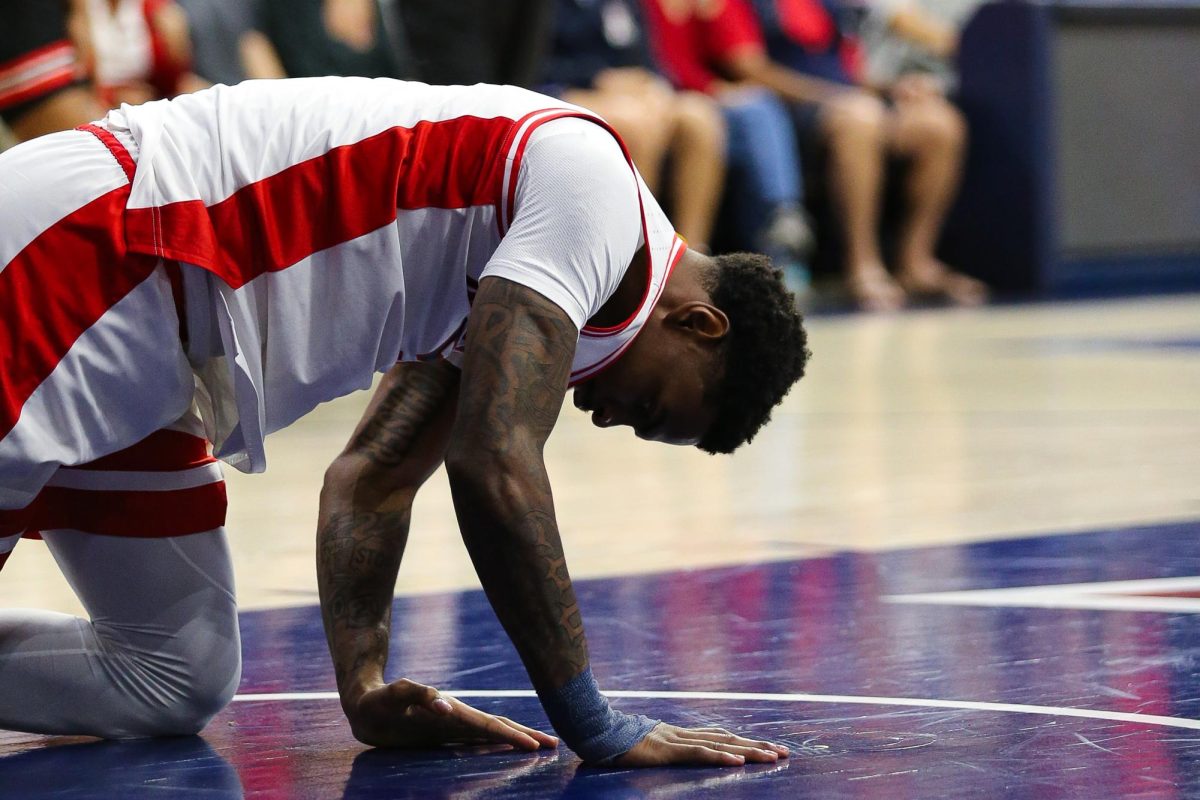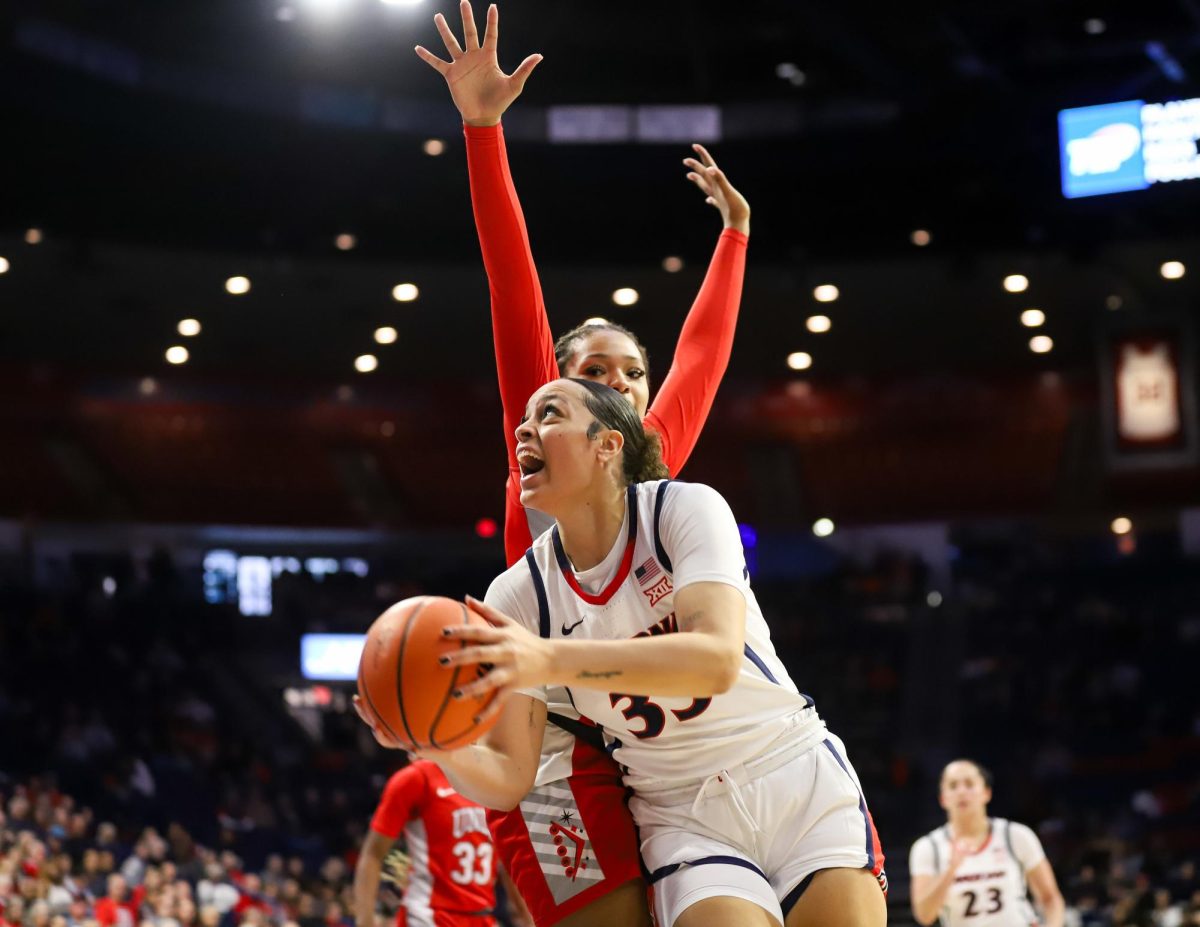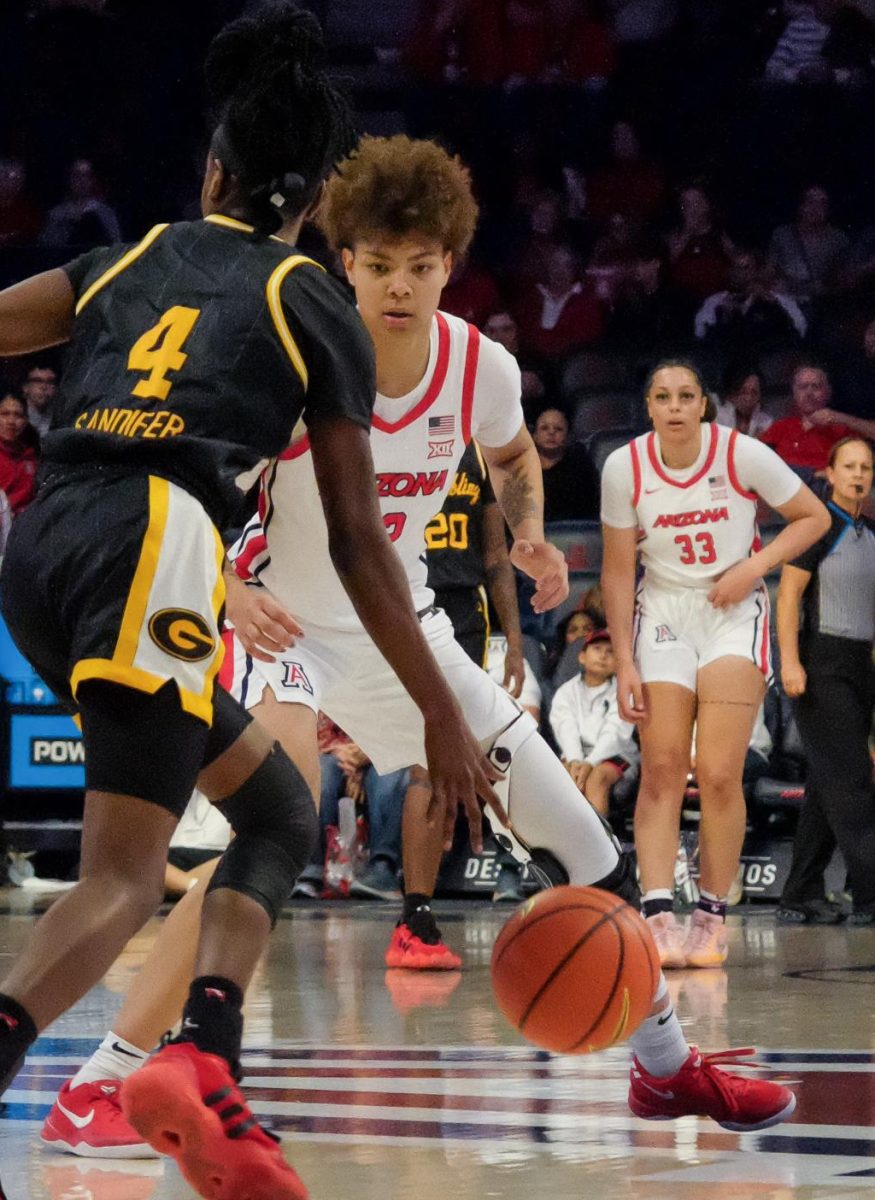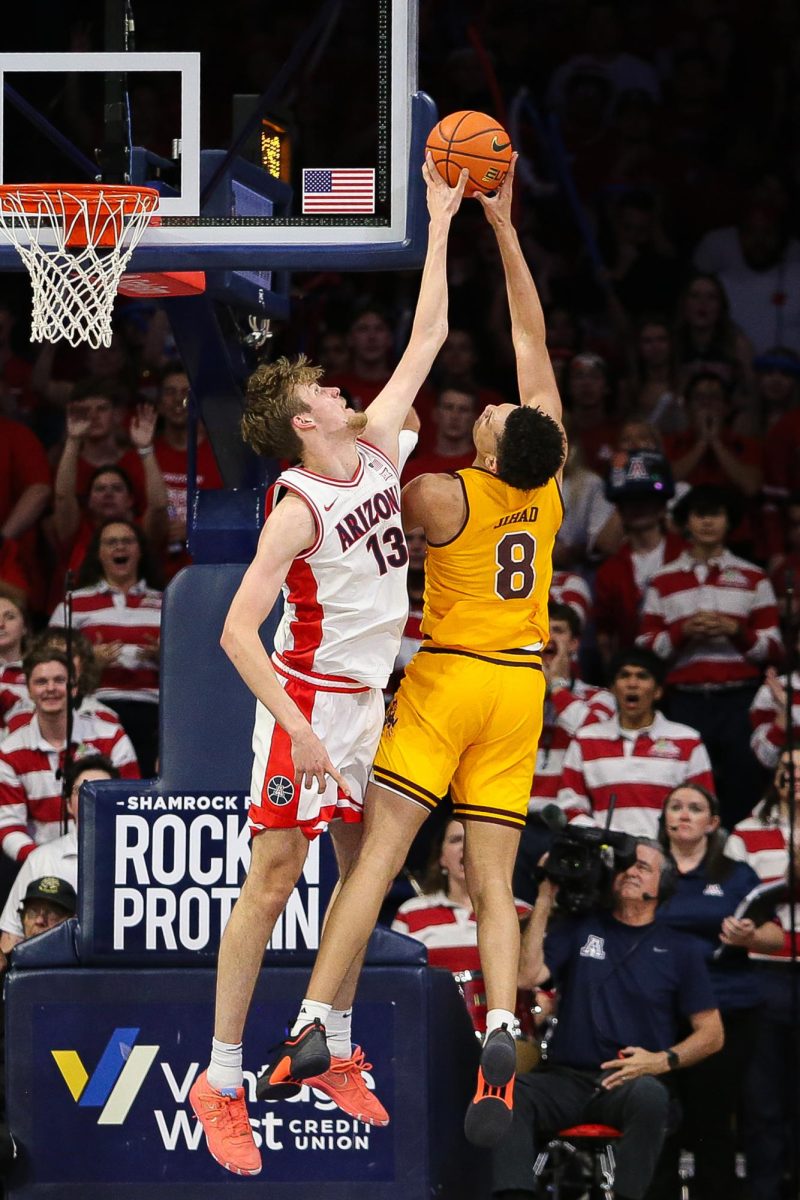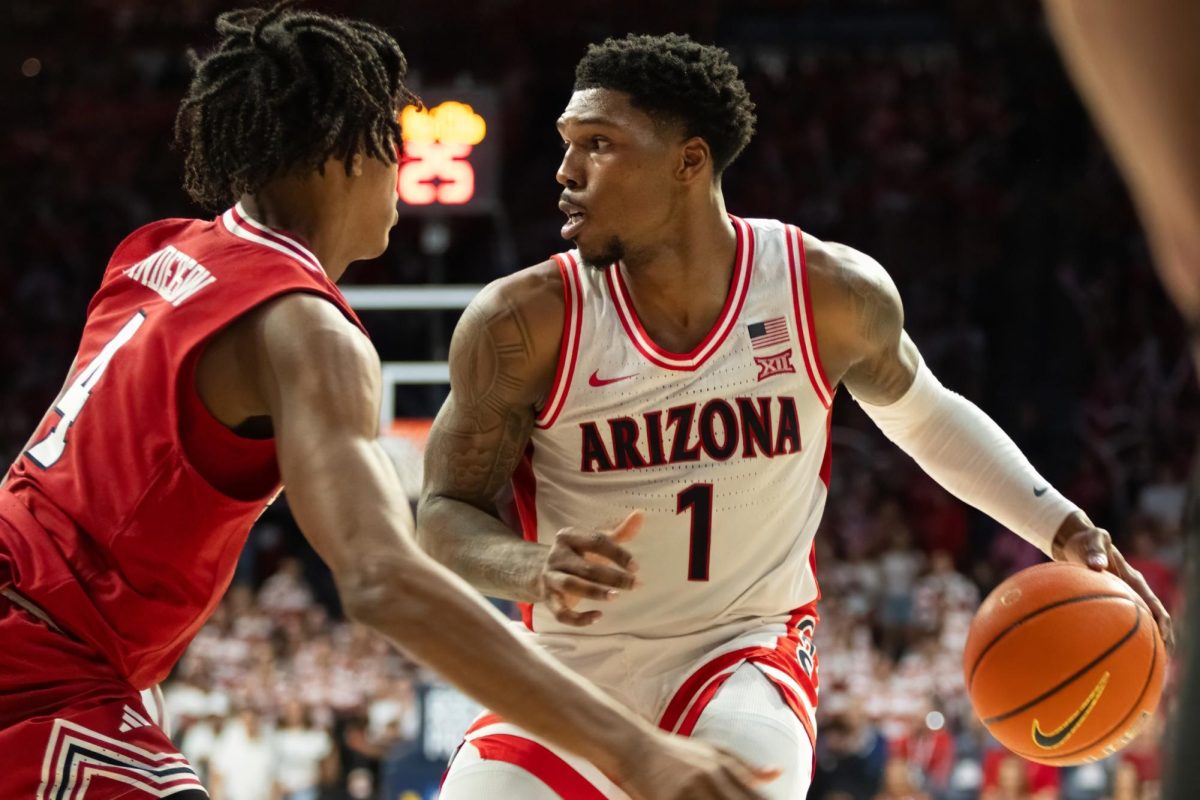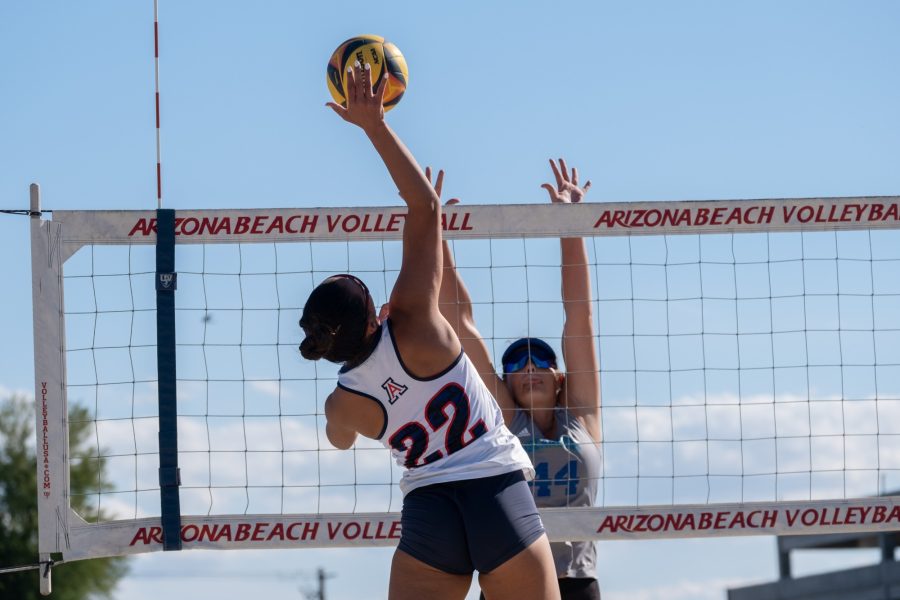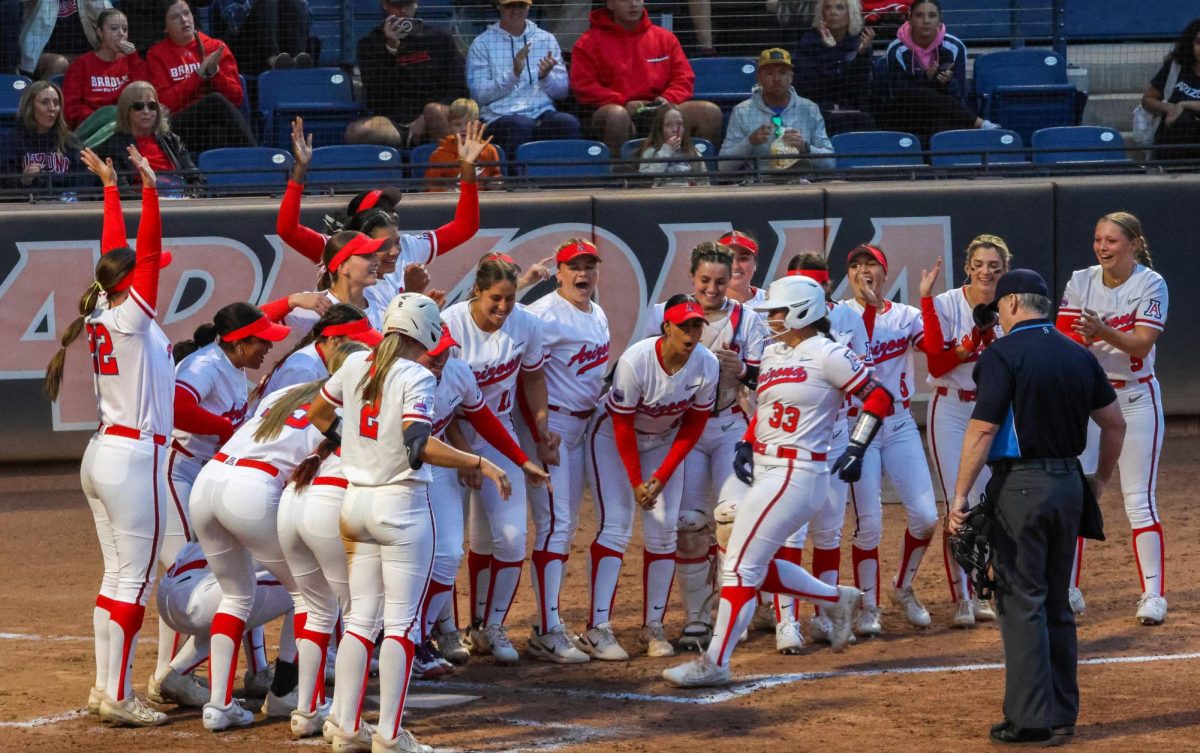Arizona dropped its first Pac-12 game of the season in a close finish, a 59-54 loss to the Oregon Ducks. The Wildcats trailed the Ducks for most of the evening, yet had a chance to pull out a win in the final minutes. The loss marks Arizona’s second home loss of the season, after Baylor, and is the first time UA has lost multiple games at home since the 2012-13 season.
Here’s a rundown at the reasons why the Ducks were able to win:
Turnovers in Tucson
“One of the key stats, no matter what year it is, is how many turnovers did your team commit?” Miller said afterward.
RELATED: Best images of the Arizona-Oregon game
Well, Arizona committed 14 turnovers against Oregon, the most the team has had since conference play started. Nine turnovers in the first half helped the Ducks climb to an eight-point halftime lead.
Oregon took advantage of UA’s mistakes throughout the night and scored 11 points off turnovers. By comparison, the Ducks turned the ball over nine times and the ‘Cats were able to get 10 points off those mistakes.
“There is such a big difference between 10 turnovers and 14, especially against Oregon,” Miller said. “So I would say that’s No. 1 on the list.”
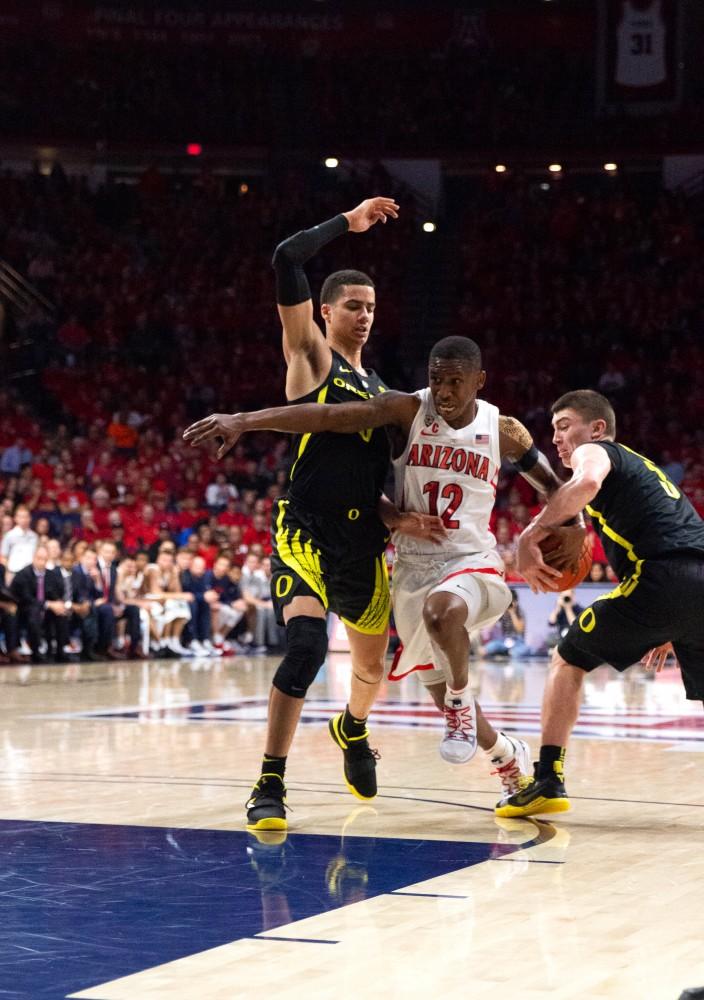
Shooting struggles
Right behind turnovers was Arizona’s shot selection, which was not good for most of the game. Arizona was an abysmal 6-22 from 3-point range and 19-52 from the field, easily one of the worst shooting performances of the year. And Miller agrees.
“No. 2 is, for whatever reason, first eight minutes, first four minutes, and throughout especially the first half, we took some tough, challenged threes,” Miller said. “I would say at halftime we didn’t have nine turnovers, we had 14 because we took five, just really horrible, challenged, selfish shots.”
UA’s best shooters did not show up throughout the night, as only Chase Jeter and Brandon Williams got into double figures scoring. Miller credited Oregon with its defensive ability to create problems for the ‘Cats.
“It reminded me of the Baylor game with their domination on the glass. Baylor against us, replace by Oregon’s ability to disrupt us and turn us over. So, we’ll learn from it,” Miller said.
Wooten’s wingspan
Oregon got a much-needed boost in the return of forward Kenny Wooten. The 6-foot-9 sophomore had missed the last four games with a broken jaw and contributed five points and senven rebounds off the bench.
His impact extends beyond just the box score, though, as Wooten altered several of Arizona’s shots from a defensive standpoint.
Wooten was able to keep Jeter in check for the most part on both ends, limiting UA’s big man to just 5-12 shooting.
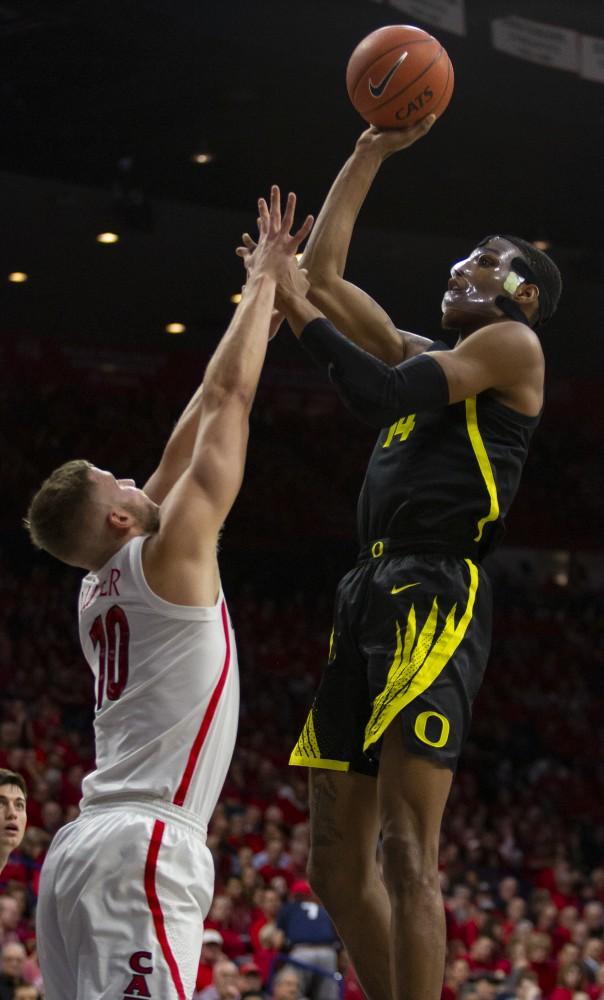
Follow Alec White on Twitter



